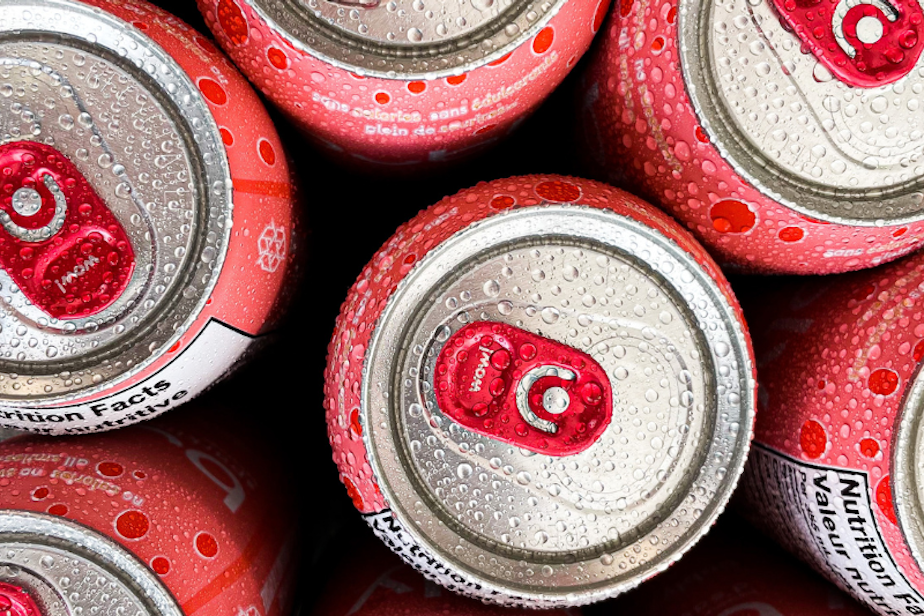Could bottle deposits be coming to Washington state?

Lawmakers in Olympia will consider a series of proposals to cut down on waste and increase recycling efforts across Washington this legislative session. Among the ideas being pushed is a new bottle deposit system for the state — deposit 10 cents for that can of soda, and return it to the store to get it back.
"If we really want to meet our goals to reduce litter and increase, reuse, and recycle targets, and refill targets, Washington must implement this type of program," state Rep. Liz Berry said at the Seattle Aquarium this week while unveiling the WRAP Act ahead of the 2023 legislative session.
RELATED: Soda tax-funded programs largely safe, despite lower pandemic revenue
If passed, the bottle deposit program proposed for Washington state would impose a 10 cent deposit on beverage containers. People could then return those containers to stores to get that 10 cents back. The idea is to motivate consumers to direct containers back into the recycling system, instead of risking the items getting into the waste system (landfills), or littered on the side of the road. It also could encourage folks to pick up littered containers.
Oregon has a similar system in place. It is not uncommon for grocery stores in that state to feature automated centers where cans and bottles can be returned, and the store will pay out the deposit on site. It is unclear if a similar system will evolve in Washington, should the deposit proposal pass in Olympia this year.
The bottle deposit proposal is part of a much larger bill slated for the 2023 session, called the WRAP Act (Washington Recycling and Packaging Act). State Rep. Berry (D–Seattle) and state Sen. Christine Rolfes (D–Bainbridge Island) are behind the effort. The WRAP Act ultimately aims to cut down on packaging waste across a range of consumer products, while increasing recycling rates.
RELATED: Plenty of Amazon plastic to go around ... the Earth
Sponsored
"The bill is a much-needed modernization of our state's recycling system," Rolfes said, adding that it builds on a 2019 assessment of the state's packaging and plastic waste, leading lawmakers to a goal of reaching 100% recyclable, reusable, or compostable packaging across Washington.
"Laws like the WRAP Act have been in place in the European Union for decades, Canada has had a law similar ... and we know from their experience that they are reducing their garbage and increasing their recycling rates. In America, four states have passed laws just like this: Maine, Oregon, Colorado, and California. It's time for Washington to do the same."
The bottle deposit program is tucked into the WRAP Act as one method, among others, of directing waste into the state's recycling system.
"I am most excited about the inclusion of a bottle deposit system in the bill, similar to what Oregon has," Berry said.
According to an informational handout, the program will have bottle distributors form a cooperative to develop ways to implement the state's reuse and recycling goals. It requires producers to pay into and set up the recycling and reuse system, funded by the distributors and unredeemed deposits.
Sponsored
Berry says that she and Rolfes worked with hundreds of stakeholders to develop details of the act. One such stakeholder is the Washington Beverage Association.
"We share the goal of an effective producer responsibility system that can help achieve a circular economy and reduce plastic waste," said Brad Boswell, executive director of the Washington Beverage Association. "We have been working closely and diligently with lawmakers and environmental groups for three years on developing a well-designed system that improves recycling rates in Washington and we look forward to continuing that work.”
As currently written, the WRAP Act targets "producer responsibility" for recycling. It would apply to businesses that supply packaging. It would not apply to nonprofits, government agencies or cities, or books, paper towels, and napkins.
Northwest News Network's Tom Banse contributed to this report.

